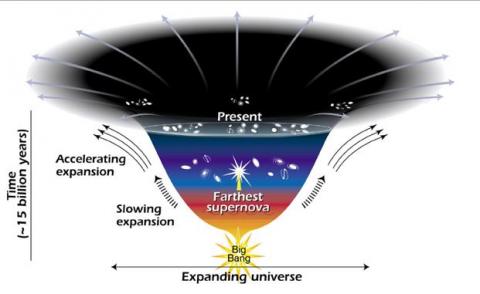Dark matter vs dark energy are two of the most mysterious components of our universe. Scientists believe that dark matter makes up about 27% of the universe, while dark energy makes up 68%. But what are these strange substances?
Dark Matter vs Dark Energy – The Difference
In the universe, dark matter and dark energy are thought to make up almost 95% of all mass and energy. Even though they are both invisible and make up such a large part of the universe, dark matter and dark energy have very different effects on the cosmos.
Dark matter is a type of matter that does not emit or reflect light, making it invisible to us. However, we can infer its presence by the way it interacts gravitationally with other objects in space. For example, dark matter can cause galaxies to rotate faster than they otherwise would.
Dark energy is a mysterious force that is causing the universe to expand at an ever-accelerating rate. It was first discovered in 1998, by two international teams that included American astronomers Adam Riess (the author of this article) and Saul Perlmutter and Australian astronomer Brian Schmidt. However, scientists are still trying to understand exactly how dark energy works, but they think it might be related to the vacuum of space.
Observational evidence
In the past two decades, cosmologists have observed that the matter in the universe is not only made up of visible baryonic matter, but also invisible dark matter. Dark matter does not emit or absorb light, which makes it difficult to detect. However, its presence can be inferred by its gravitational effects on visible matter. For example, dark matter can cause galaxies to rotate faster than they would if they were only composed of visible baryonic matter.
In addition to dark matter, another mysterious component of the universe is dark energy. Dark energy is thought to be responsible for the acceleration of the universe’s expansion. Unlike dark matter, dark energy does not interact with other forms of energy via gravity. Instead, it interacts evenly with all forms of energy, causing the universe to expand at an ever-increasing rate.

Theories on the nature of dark matter and dark energy
There are many theories about the nature of dark matter and dark energy. Some scientists believe that dark matter is made up of exotic particles that do not interact with light or other forms of electromagnetic radiation. Others believe that dark energy is a property of space itself, causing the expansion of the universe to accelerate.
Dark matter and dark energy are still largely mysterious, but scientists are working hard to uncover their secrets. By better understanding these phenomena, we can gain insights into the workings of our universe on a much larger scale.
Love to read, explore and write about Science, Mathematics and Technology.
The name “Newton” coming from how I love Science.
